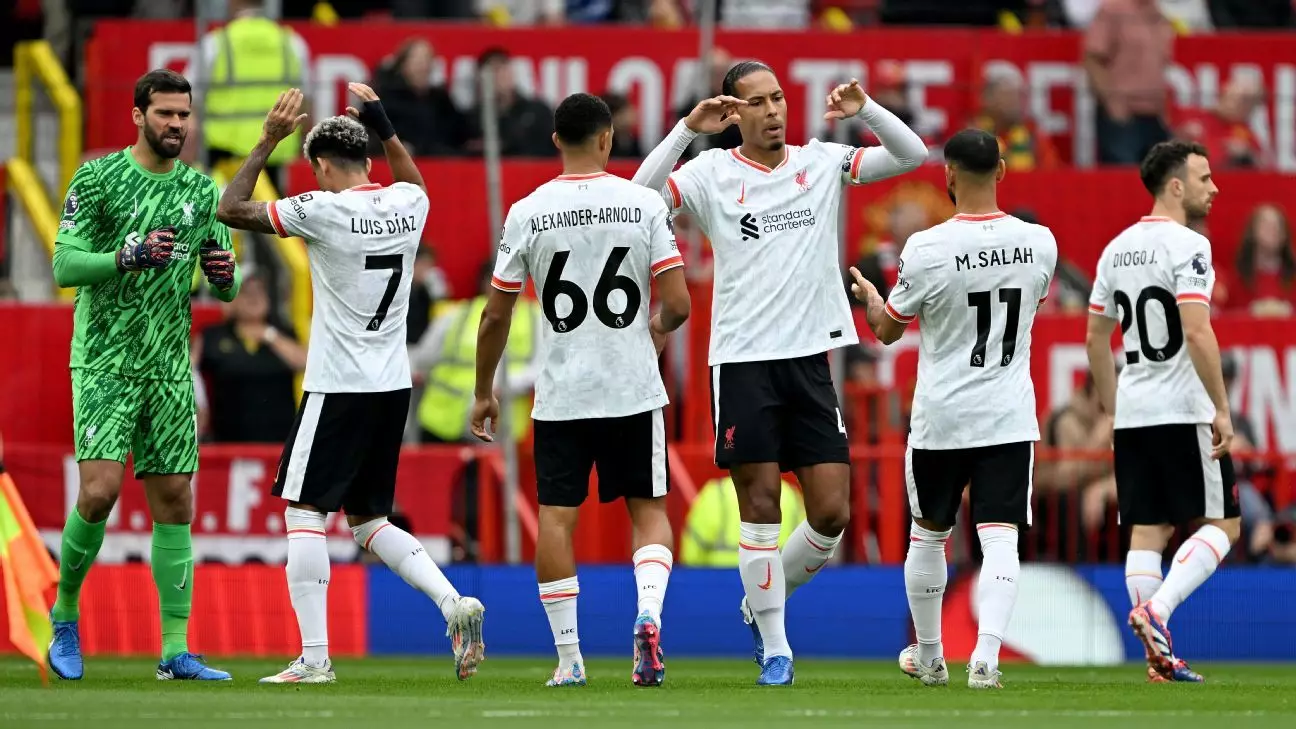Liverpool Football Club is facing a precarious situation that could significantly alter the team’s competitive landscape. Three of their pivotal players—Mohamed Salah, Virgil van Dijk, and Trent Alexander-Arnold—are set to enter the final months of their contracts, which are due to expire at the end of the current season. This looming deadline has brought the club to a crossroads, as the potential for losing these star athletes for nothing is increasing. Each player has unique contributions to the squad, and their futures are now tightly interconnected, creating a high-stakes dilemma for the club’s management and fans alike.
The critical nature of the situation cannot be overstated; Liverpool’s owners, Fenway Sports Group (FSG), alongside their football operations team, are facing a challenging game of chess. The players can legally negotiate with non-English clubs starting from January 1, 2025. The reality of losing such a talented trio can lead to considerable financial and performance ramifications for the Reds.
Salah, at 32, and Van Dijk, who is 33, bring vast experience and exceptional talent, and their age raises questions about future performance. On the other hand, a 25-year-old Alexander-Arnold is at a pivotal stage of his career, making his contractual situation impactful in its own right. While it might be understandable for Liverpool to adopt a cautious approach with Salah and Van Dijk due to their age and prior experiences with other players, this same strategy poses risks, particularly with Alexender-Arnold, whose prime years lie ahead.
The varying urgency of renewing contracts for these players could create friction within the squad. If one player manages to secure a deal quickly, the others may leverage this for better financial terms, potentially straining relations or creating resentment. And given that contracts haven’t been publicly discussed in detail, the lack of transparency only compounds the uncertainty felt among supporters and within the locker room.
While it is typical for businesses to keep contract negotiations under wraps, the ongoing silence from Liverpool’s management on these matters is creating an environment steeped in speculation. Van Dijk’s and Salah’s comments revealing that they have yet to receive offers for new contracts add a disconcerting layer to this anxious atmosphere. Such situations often lead to murmurs of discontent among fans—worried not just about losing their key players, but also regarding the overall health of the club’s leadership and decision-making.
The historical context of criticized contract negotiations, particularly involving the likes of Sadio Mané and Roberto Firmino, adds weight to these concerns. Liverpool management previously chose to cash in before a player’s value diminished, and while one could argue this was prudent, the ongoing circumstance might indicate a changing landscape with the emergence of new talent and leadership dynamics.
Trent Alexander-Arnold’s scenario is particularly intricate given his background as a homegrown talent and lifelong Liverpool supporter. As he approaches his prime, the club has to consider the broader implications of any decision concerning his contract. If they decide to extend his contract swiftly, it could set a precedent in negotiations for Salah and Van Dijk that the club might find unfavorable. Yet, delaying action on Alexander-Arnold’s contract could also risk losing him to rival clubs, who might be eager to capitalize on his potential.
Moreover, rumors linking him to prestigious clubs, such as Real Madrid, are persistent, suggesting that both player and club are navigating delicate waters. His recent assertion about prioritizing trophies and success over contract discussions hints at motivations that extend beyond mere financial considerations—validating the commitment of both the player to the club and the club to competitive excellence.
As the end of the season looms, Liverpool’s window for decisive action narrows. The risk of losing three foundational players not only threatens the club’s immediate competitive viability but also raises questions about its future direction. If these negotiations drag on, they could evolve into a distraction that hampers team performance and morale.
Ultimately, this impasse isn’t merely a management issue; it reflects a larger uncertainty about Liverpool’s ambitions and sustainability in football’s volatile market. The club must act swiftly and prudently to balance the immediate need to secure their pillars with longer-term considerations about their squad’s evolution. The stakes couldn’t be higher—the next few months will be critical in determining whether Liverpool can retain its key talents or watch them slip away to rival clubs in the unyielding world of football.

